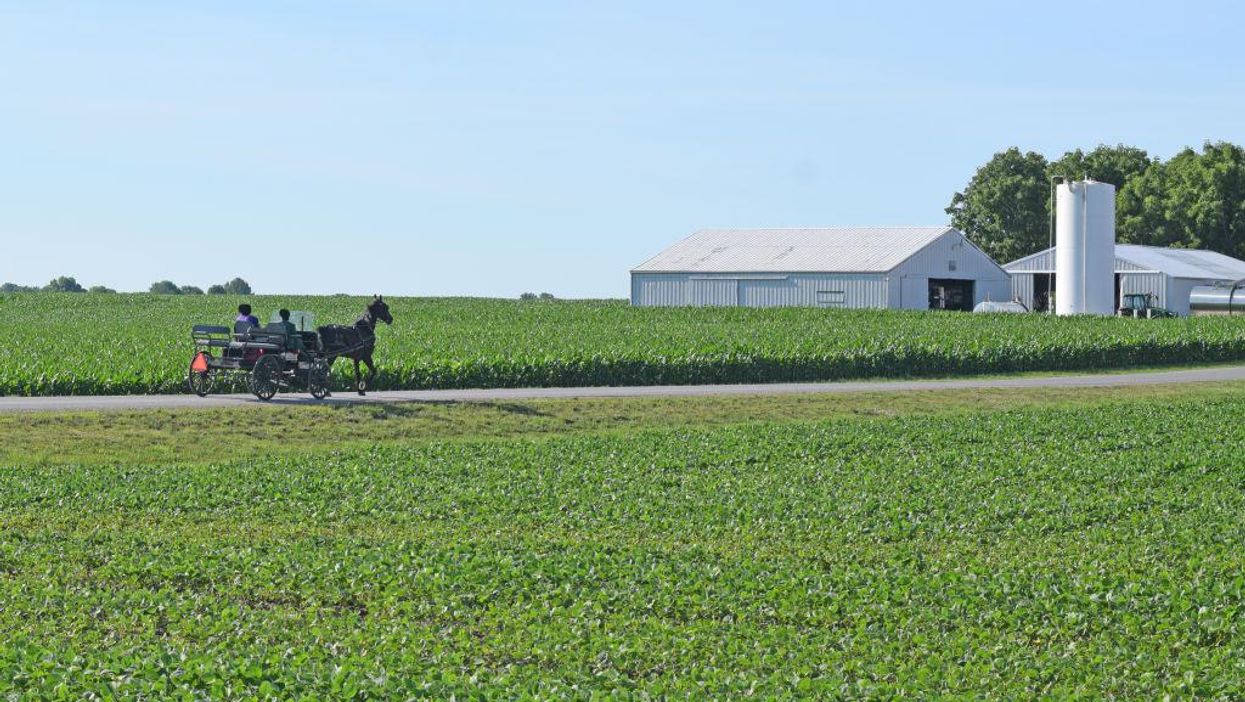
HUM Images/Universal Images Group via Getty Images

The case raises questions about when exactly someone must register as a federally licensed gun retailer
An Amish dairy farmer in Lancaster County, Pennsylvania recently became the target of President Joe Biden's promised crackdown on "rogue gun dealers" — but he claims he's nothing more than a gun collector and occasional salesman.
Two weeks ago, agents from the Bureau of Alcohol, Tobacco, Firearms, and Explosives stormed Reuben King's Leacock Township property, seizing an untold number of firearms as part of an ongoing investigation into the farmer's alleged gun retail business.
“ATF agents, as part of an ongoing investigation, executed an enforcement operation at the Cattail Foundry and seized evidence,” on Jan. 12, ATF spokesperson Robert Cucinotta announced Monday, according to Lancaster Online.
So far, no arrests have been made, and no charges have been filed in the case, as the ATF stays mum about the details. But speculation is growing that the Department of Justice is closing in on an indictment against King for selling guns without a federal firearms license, Bearing Arms reported.
King admitted, after all, that he has indeed been selling guns without a license, but he insisted they were all part of his personal collection and had nothing to do with the foundry.
“I’m not going to deny that I was selling some,” Reuben King said in conversion with Lancaster Online Tuesday.
“[But] this is my business: I’m a dairyman," he maintained, reportedly while inside a barn filled with about 50 dairy cows. As he gave the interview, he swept the floor with a push broom.
King declined to say just how many guns he sold but told the local outlet noted that the 600 suggested to the outlet by a tipster didn't sound right.
He added he didn't advertise the sale of his guns online and was not aware of how the ATF became aware of the activity. He said he primarily sold long guns to the Amish for hunting, but acknowledged that he sold some to non-Amish, as well.
“I was not dealing in handguns, positively not,” King said.
The case against King may not be as "open and shut" as it seems.
King claimed the government hasn't been able to tell him how many guns a person can sell or over what timeframe before a federal firearms license is required.
His complaint is valid.
A 15-page document posted to the bureau’s website titled, “Do I need a license to buy and sell firearms?” merely stipulates that the federal Gun Control Act "requires that persons who are engaged in the business of dealing in firearms be licensed by the bureau."
It adds that "determining whether you are ‘engaged in the business’ of dealing in firearms requires looking at the specific facts and circumstances of your activities" but notes no federal law sets a “‘bright-line’ rule for when a federal firearms license is required.”
"As a general rule, you will need a license if you repetitively buy and sell firearms with the principal motive of making a profit," the ATF document states before once again adding the caveat that a license is not required for someone who engages in the "occasional sales of firearms from your personal collection."
So which side of the law do King's activities fall under? That's the question that the ATF will have to answer.
Commenting on the news, writer for Bearing Arms Cam Edwards suggested that the number of guns sold in this case may be the pertinent factor.
"If it was anywhere close to 600, it’s going to be awfully hard to argue that this was just a hobby or a way for King to occasionally offload some of his collection," he said.
But on the other hand, if it's much lower than that, King's occasional gun sales argument may hold water — especially considering the wrinkle that effectively forces the Amish to buy guns from private dealers. Amish contend their religious beliefs prevent them from being photographed, but photo IDs are required when buying from a licensed dealer.
Furthermore, Edwards added that "the Biden administration has warned that it’s going after 'rogue gun dealers,' and while I don’t think busting an Amish farmer would be the public relations coup that Biden’s looking for, the ATF and DOJ could very well decide to make an example out of King if they have evidence he was selling a large number of firearms without obtaining an FFL."